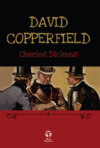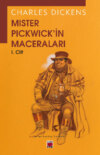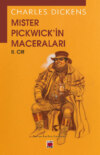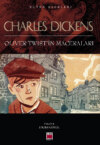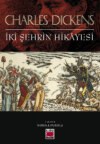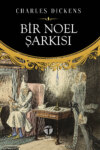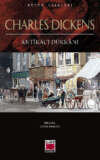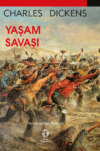Kitabı oku: «Pictures from Italy», sayfa 6
TO PARMA, MODENA, AND BOLOGNA
I strolled away from Genoa on the 6th of November, bound for a good many places (England among them), but first for Piacenza; for which town I started in the coupé of a machine something like a travelling caravan, in company with the brave Courier, and a lady with a large dog, who howled dolefully, at intervals, all night. It was very wet, and very cold; very dark, and very dismal; we travelled at the rate of barely four miles an hour, and stopped nowhere for refreshment. At ten o’clock next morning, we changed coaches at Alessandria, where we were packed up in another coach (the body whereof would have been small for a fly), in company with a very old priest; a young Jesuit, his companion – who carried their breviaries and other books, and who, in the exertion of getting into the coach, had made a gash of pink leg between his black stocking and his black knee-shorts, that reminded one of Hamlet in Ophelia’s closet, only it was visible on both legs – a provincial Avvocáto; and a gentleman with a red nose that had an uncommon and singular sheen upon it, which I never observed in the human subject before. In this way we travelled on, until four o’clock in the afternoon; the roads being still very heavy, and the coach very slow. To mend the matter, the old priest was troubled with cramps in his legs, so that he had to give a terrible yell every ten minutes or so, and be hoisted out by the united efforts of the company; the coach always stopping for him, with great gravity. This disorder, and the roads, formed the main subject of conversation. Finding, in the afternoon, that the coupé had discharged two people, and had only one passenger inside – a monstrous ugly Tuscan, with a great purple moustache, of which no man could see the ends when he had his hat on – I took advantage of its better accommodation, and in company with this gentleman (who was very conversational and good-humoured) travelled on, until nearly eleven o’clock at night, when the driver reported that he couldn’t think of going any farther, and we accordingly made a halt at a place called Stradella.
The inn was a series of strange galleries surrounding a yard where our coach, and a waggon or two, and a lot of fowls, and firewood, were all heaped up together, higgledy-piggledy; so that you didn’t know, and couldn’t have taken your oath, which was a fowl and which was a cart. We followed a sleepy man with a flaring torch, into a great, cold room, where there were two immensely broad beds, on what looked like two immensely broad deal dining-tables; another deal table of similar dimensions in the middle of the bare floor; four windows; and two chairs. Somebody said it was my room; and I walked up and down it, for half an hour or so, staring at the Tuscan, the old priest, the young priest, and the Avvocáto (Red-Nose lived in the town, and had gone home), who sat upon their beds, and stared at me in return.
The rather dreary whimsicality of this stage of the proceedings, is interrupted by an announcement from the Brave (he had been cooking) that supper is ready; and to the priest’s chamber (the next room and the counterpart of mine) we all adjourn. The first dish is a cabbage, boiled with a great quantity of rice in a tureen full of water, and flavoured with cheese. It is so hot, and we are so cold, that it appears almost jolly. The second dish is some little bits of pork, fried with pigs’ kidneys. The third, two red fowls. The fourth, two little red turkeys. The fifth, a huge stew of garlic and truffles, and I don’t know what else; and this concludes the entertainment.
Before I can sit down in my own chamber, and think it of the dampest, the door opens, and the Brave comes moving in, in the middle of such a quantity of fuel that he looks like Birnam Wood taking a winter walk. He kindles this heap in a twinkling, and produces a jorum of hot brandy and water; for that bottle of his keeps company with the seasons, and now holds nothing but the purest eau de vie. When he has accomplished this feat, he retires for the night; and I hear him, for an hour afterwards, and indeed until I fall asleep, making jokes in some outhouse (apparently under the pillow), where he is smoking cigars with a party of confidential friends. He never was in the house in his life before; but he knows everybody everywhere, before he has been anywhere five minutes; and is certain to have attracted to himself, in the meantime, the enthusiastic devotion of the whole establishment.
This is at twelve o’clock at night. At four o’clock next morning, he is up again, fresher than a full-blown rose; making blazing fires without the least authority from the landlord; producing mugs of scalding coffee when nobody else can get anything but cold water; and going out into the dark streets, and roaring for fresh milk, on the chance of somebody with a cow getting up to supply it. While the horses are ‘coming,’ I stumble out into the town too. It seems to be all one little Piazza, with a cold damp wind blowing in and out of the arches, alternately, in a sort of pattern. But it is profoundly dark, and raining heavily; and I shouldn’t know it to-morrow, if I were taken there to try. Which Heaven forbid.
The horses arrive in about an hour. In the interval, the driver swears; sometimes Christian oaths, sometimes Pagan oaths. Sometimes, when it is a long, compound oath, he begins with Christianity and merges into Paganism. Various messengers are despatched; not so much after the horses, as after each other; for the first messenger never comes back, and all the rest imitate him. At length the horses appear, surrounded by all the messengers; some kicking them, and some dragging them, and all shouting abuse to them. Then, the old priest, the young priest, the Avvocáto, the Tuscan, and all of us, take our places; and sleepy voices proceeding from the doors of extraordinary hutches in divers parts of the yard, cry out ‘Addio corrière mio! Buon’ viággio, corrière!’ Salutations which the courier, with his face one monstrous grin, returns in like manner as we go jolting and wallowing away, through the mud.
At Piacenza, which was four or five hours’ journey from the inn at Stradella, we broke up our little company before the hotel door, with divers manifestations of friendly feeling on all sides. The old priest was taken with the cramp again, before he had got half-way down the street; and the young priest laid the bundle of books on a door-step, while he dutifully rubbed the old gentleman’s legs. The client of the Avvocáto was waiting for him at the yard-gate, and kissed him on each cheek, with such a resounding smack, that I am afraid he had either a very bad case, or a scantily-furnished purse. The Tuscan, with a cigar in his mouth, went loitering off, carrying his hat in his hand that he might the better trail up the ends of his dishevelled moustache. And the brave Courier, as he and I strolled away to look about us, began immediately to entertain me with the private histories and family affairs of the whole party.
A brown, decayed, old town, Piacenza is. A deserted, solitary, grass-grown place, with ruined ramparts; half filled-up trenches, which afford a frowsy pasturage to the lean kine that wander about them; and streets of stern houses, moodily frowning at the other houses over the way. The sleepiest and shabbiest of soldiery go wandering about, with the double curse of laziness and poverty, uncouthly wrinkling their misfitting regimentals; the dirtiest of children play with their impromptu toys (pigs and mud) in the feeblest of gutters; and the gauntest of dogs trot in and out of the dullest of archways, in perpetual search of something to eat, which they never seem to find. A mysterious and solemn Palace, guarded by two colossal statues, twin Genii of the place, stands gravely in the midst of the idle town; and the king with the marble legs, who flourished in the time of the thousand and one Nights, might live contentedly inside of it, and never have the energy, in his upper half of flesh and blood, to want to come out.
What a strange, half-sorrowful and half-delicious doze it is, to ramble through these places gone to sleep and basking in the sun! Each, in its turn, appears to be, of all the mouldy, dreary, God-forgotten towns in the wide world, the chief. Sitting on this hillock where a bastion used to be, and where a noisy fortress was, in the time of the old Roman station here, I became aware that I have never known till now, what it is to be lazy. A dormouse must surely be in very much the same condition before he retires under the wool in his cage; or a tortoise before he buries himself.
I feel that I am getting rusty. That any attempt to think, would be accompanied with a creaking noise. That there is nothing, anywhere, to be done, or needing to be done. That there is no more human progress, motion, effort, or advancement, of any kind beyond this. That the whole scheme stopped here centuries ago, and laid down to rest until the Day of Judgment.
Never while the brave Courier lives! Behold him jingling out of Piacenza, and staggering this way, in the tallest posting-chaise ever seen, so that he looks out of the front window as if he were peeping over a garden wall; while the postilion, concentrated essence of all the shabbiness of Italy, pauses for a moment in his animated conversation, to touch his hat to a blunt-nosed little Virgin, hardly less shabby than himself, enshrined in a plaster Punch’s show outside the town.
In Genoa, and thereabouts, they train the vines on trellis-work, supported on square clumsy pillars, which, in themselves, are anything but picturesque. But, here, they twine them around trees, and let them trail among the hedges; and the vineyards are full of trees, regularly planted for this purpose, each with its own vine twining and clustering about it. Their leaves are now of the brightest gold and deepest red; and never was anything so enchantingly graceful and full of beauty. Through miles of these delightful forms and colours, the road winds its way. The wild festoons, the elegant wreaths, and crowns, and garlands of all shapes; the fairy nets flung over great trees, and making them prisoners in sport; the tumbled heaps and mounds of exquisite shapes upon the ground; how rich and beautiful they are! And every now and then, a long, long line of trees, will be all bound and garlanded together: as if they had taken hold of one another, and were coming dancing down the field!
Parma has cheerful, stirring streets, for an Italian town; and consequently is not so characteristic as many places of less note. Always excepting the retired Piazza, where the Cathedral, Baptistery, and Campanile – ancient buildings, of a sombre brown, embellished with innumerable grotesque monsters and dreamy-looking creatures carved in marble and red stone – are clustered in a noble and magnificent repose. Their silent presence was only invaded, when I saw them, by the twittering of the many birds that were flying in and out of the crevices in the stones and little nooks in the architecture, where they had made their nests. They were busy, rising from the cold shade of Temples made with hands, into the sunny air of Heaven. Not so the worshippers within, who were listening to the same drowsy chaunt, or kneeling before the same kinds of images and tapers, or whispering, with their heads bowed down, in the selfsame dark confessionals, as I had left in Genoa and everywhere else.
The decayed and mutilated paintings with which this church is covered, have, to my thinking, a remarkably mournful and depressing influence. It is miserable to see great works of art – something of the Souls of Painters – perishing and fading away, like human forms. This cathedral is odorous with the rotting of Correggio’s frescoes in the Cupola. Heaven knows how beautiful they may have been at one time. Connoisseurs fall into raptures with them now; but such a labyrinth of arms and legs: such heaps of foreshortened limbs, entangled and involved and jumbled together: no operative surgeon, gone mad, could imagine in his wildest delirium.
There is a very interesting subterranean church here: the roof supported by marble pillars, behind each of which there seemed to be at least one beggar in ambush: to say nothing of the tombs and secluded altars. From every one of these lurking-places, such crowds of phantom-looking men and women, leading other men and women with twisted limbs, or chattering jaws, or paralytic gestures, or idiotic heads, or some other sad infirmity, came hobbling out to beg, that if the ruined frescoes in the cathedral above, had been suddenly animated, and had retired to this lower church, they could hardly have made a greater confusion, or exhibited a more confounding display of arms and legs.
There is Petrarch’s Monument, too; and there is the Baptistery, with its beautiful arches and immense font; and there is a gallery containing some very remarkable pictures, whereof a few were being copied by hairy-faced artists, with little velvet caps more off their heads than on. There is the Farnese Palace, too; and in it one of the dreariest spectacles of decay that ever was seen – a grand, old, gloomy theatre, mouldering away.
It is a large wooden structure, of the horse-shoe shape; the lower seats arranged upon the Roman plan, but above them, great heavy chambers; rather than boxes, where the Nobles sat, remote in their proud state. Such desolation as has fallen on this theatre, enhanced in the spectator’s fancy by its gay intention and design, none but worms can be familiar with. A hundred and ten years have passed, since any play was acted here. The sky shines in through the gashes in the roof; the boxes are dropping down, wasting away, and only tenanted by rats; damp and mildew smear the faded colours, and make spectral maps upon the panels; lean rags are dangling down where there were gay festoons on the Proscenium; the stage has rotted so, that a narrow wooden gallery is thrown across it, or it would sink beneath the tread, and bury the visitor in the gloomy depth beneath. The desolation and decay impress themselves on all the senses. The air has a mouldering smell, and an earthy taste; any stray outer sounds that straggle in with some lost sunbeam, are muffled and heavy; and the worm, the maggot, and the rot have changed the surface of the wood beneath the touch, as time will seam and roughen a smooth hand. If ever Ghosts act plays, they act them on this ghostly stage.
It was most delicious weather, when we came into Modena, where the darkness of the sombre colonnades over the footways skirting the main street on either side, was made refreshing and agreeable by the bright sky, so wonderfully blue. I passed from all the glory of the day, into a dim cathedral, where High Mass was performing, feeble tapers were burning, people were kneeling in all directions before all manner of shrines, and officiating priests were crooning the usual chant, in the usual, low, dull, drawling, melancholy tone.
Thinking how strange it was, to find, in every stagnant town, this same Heart beating with the same monotonous pulsation, the centre of the same torpid, listless system, I came out by another door, and was suddenly scared to death by a blast from the shrillest trumpet that ever was blown. Immediately, came tearing round the corner, an equestrian company from Paris: marshalling themselves under the walls of the church, and flouting, with their horses’ heels, the griffins, lions, tigers, and other monsters in stone and marble, decorating its exterior. First, there came a stately nobleman with a great deal of hair, and no hat, bearing an enormous banner, on which was inscribed, Mazeppa! to-night! Then, a Mexican chief, with a great pear-shaped club on his shoulder, like Hercules. Then, six or eight Roman chariots: each with a beautiful lady in extremely short petticoats, and unnaturally pink tights, erect within: shedding beaming looks upon the crowd, in which there was a latent expression of discomposure and anxiety, for which I couldn’t account, until, as the open back of each chariot presented itself, I saw the immense difficulty with which the pink legs maintained their perpendicular, over the uneven pavement of the town: which gave me quite a new idea of the ancient Romans and Britons. The procession was brought to a close, by some dozen indomitable warriors of different nations, riding two and two, and haughtily surveying the tame population of Modena: among whom, however, they occasionally condescended to scatter largesse in the form of a few handbills. After caracolling among the lions and tigers, and proclaiming that evening’s entertainments with blast of trumpet, it then filed off, by the other end of the square, and left a new and greatly increased dulness behind.
When the procession had so entirely passed away, that the shrill trumpet was mild in the distance, and the tail of the last horse was hopelessly round the corner, the people who had come out of the church to stare at it, went back again. But one old lady, kneeling on the pavement within, near the door, had seen it all, and had been immensely interested, without getting up; and this old lady’s eye, at that juncture, I happened to catch: to our mutual confusion. She cut our embarrassment very short, however, by crossing herself devoutly, and going down, at full length, on her face, before a figure in a fancy petticoat and a gilt crown; which was so like one of the procession-figures, that perhaps at this hour she may think the whole appearance a celestial vision. Anyhow, I must certainly have forgiven her her interest in the Circus, though I had been her Father Confessor.
There was a little fiery-eyed old man with a crooked shoulder, in the cathedral, who took it very ill that I made no effort to see the bucket (kept in an old tower) which the people of Modena took away from the people of Bologna in the fourteenth century, and about which there was war made and a mock-heroic poem by Tassone, too. Being quite content, however, to look at the outside of the tower, and feast, in imagination, on the bucket within; and preferring to loiter in the shade of the tall Campanile, and about the cathedral; I have no personal knowledge of this bucket, even at the present time.
Indeed, we were at Bologna, before the little old man (or the Guide-Book) would have considered that we had half done justice to the wonders of Modena. But it is such a delight to me to leave new scenes behind, and still go on, encountering newer scenes – and, moreover, I have such a perverse disposition in respect of sights that are cut, and dried, and dictated – that I fear I sin against similar authorities in every place I visit.
Be this as it may, in the pleasant Cemetery at Bologna, I found myself walking next Sunday morning, among the stately marble tombs and colonnades, in company with a crowd of Peasants, and escorted by a little Cicerone of that town, who was excessively anxious for the honour of the place, and most solicitous to divert my attention from the bad monuments: whereas he was never tired of extolling the good ones. Seeing this little man (a good-humoured little man he was, who seemed to have nothing in his face but shining teeth and eyes) looking wistfully at a certain plot of grass, I asked him who was buried there. ‘The poor people, Signore,’ he said, with a shrug and a smile, and stopping to look back at me – for he always went on a little before, and took off his hat to introduce every new monument. ‘Only the poor, Signore! It’s very cheerful. It’s very lively. How green it is, how cool! It’s like a meadow! There are five,’ – holding up all the fingers of his right hand to express the number, which an Italian peasant will always do, if it be within the compass of his ten fingers, – ‘there are five of my little children buried there, Signore; just there; a little to the right. Well! Thanks to God! It’s very cheerful. How green it is, how cool it is! It’s quite a meadow!’
He looked me very hard in the face, and seeing I was sorry for him, took a pinch of snuff (every Cicerone takes snuff), and made a little bow; partly in deprecation of his having alluded to such a subject, and partly in memory of the children and of his favourite saint. It was as unaffected and as perfectly natural a little bow, as ever man made. Immediately afterwards, he took his hat off altogether, and begged to introduce me to the next monument; and his eyes and his teeth shone brighter than before.

